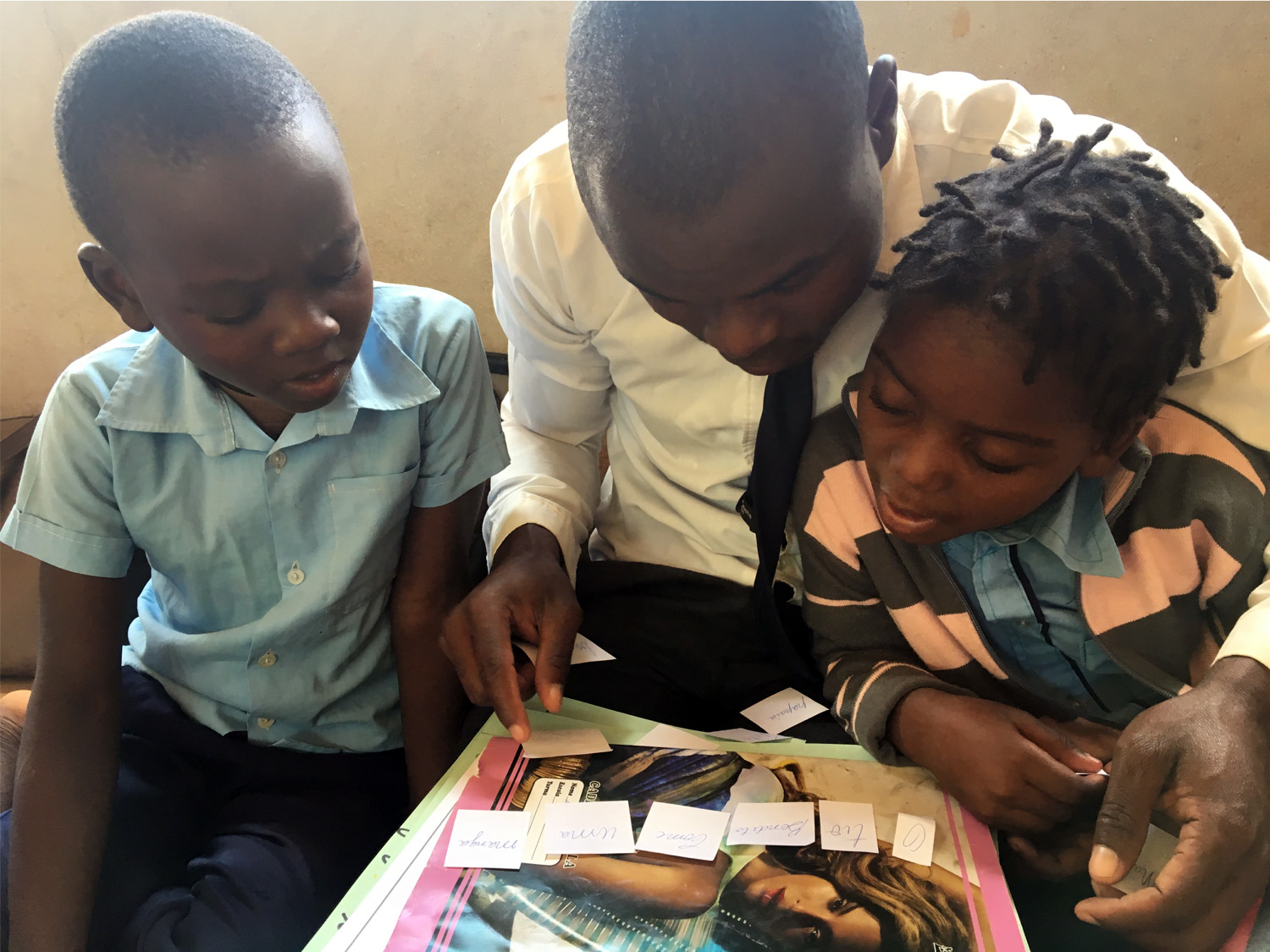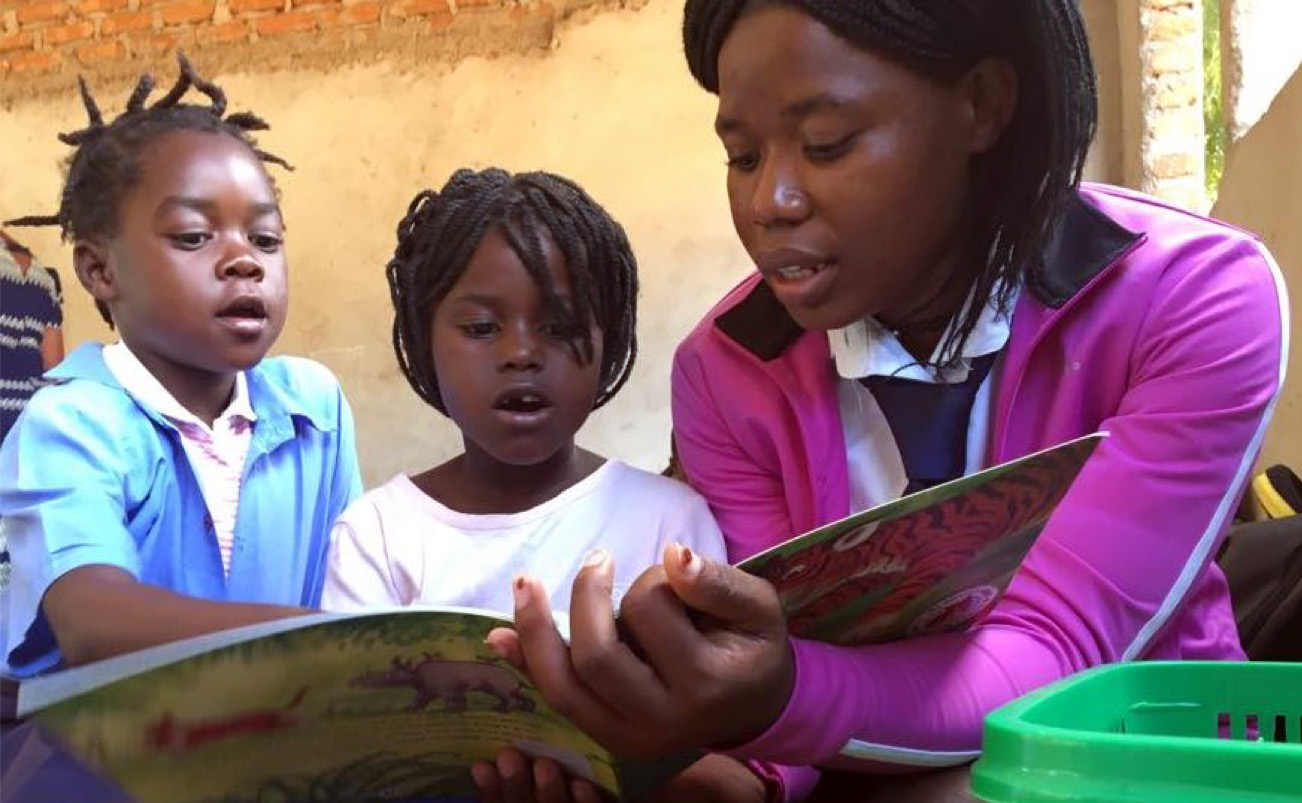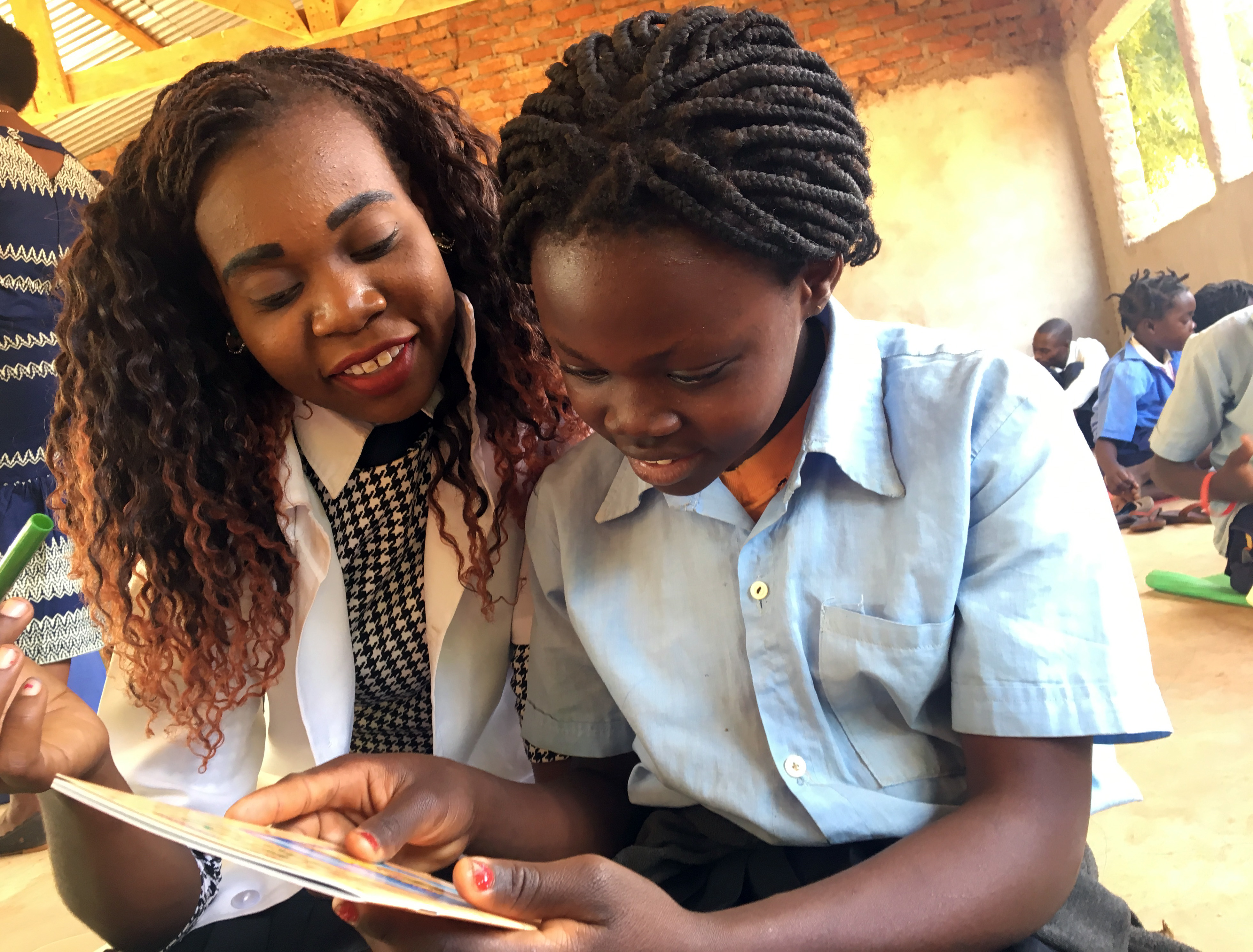isty Sailors and Jim Hoffman first traveled to southern Africa for literacy-based research projects nearly 20 years ago. Back then, Sailors and Hoffman -- now professors in UNT's Department of Teacher Education and Administration -- primarily focused on curriculum materials development in South Africa and Malawi, collaborating with teachers to create more than 300 titles of books for children.
An Educational Study, Abroad
Misty Sailors and Jim Hoffman develop 'hybrid spaces' for learning in Mozambique.
September 25, 2020
M
So when they embarked on their latest endeavor in Mozambique, it was both familiar and unfamiliar territory. Their current research -- part of the BETTER project implemented by CODE (Canada) and Associação Progresso (Mozambique) with funds from the Government of Canada, and in close collaboration with the Ministry of Education and Human Development of Mozambique -- involves working with the country's teacher training colleges to develop transformative hybrid spaces that will better prepare future educators to build strong relationships with their students.
The hybridity, the two say, refers to the place between traditional university-based instruction and the practicum experience. In hybrid spaces -- also referred to as "mentoring" spaces -- future teachers receive the opportunity to engage with students and practice instructional techniques under the close supervision of their university instructors.
"This hybrid space is the best of both worlds," says Sailors, who notes she and Hoffman also use hybrid spaces with PALS, a cohort of UNT students who mentor children at Denton ISD's Ginnings Elementary. "We get to see their beginning understanding, and then we know what we need to talk about in our coursework based on what we see them doing. We capitalize on seeing and watching and being there with them as a way to inform what we do as their instructors."

Formandos (student teachers) in Mozambique interact with students as their college
instructors supervise in a hybrid -- or "mentoring" -- space.

Formandos (student teachers) in Mozambique interact with students as their college
instructors supervise in a hybrid -- or "mentoring" -- space.

Formandos (student teachers) in Mozambique interact with students as their college
instructors supervise in a hybrid -- or "mentoring" -- space.
Hoffman and Sailors entered into the project with curious minds, as eager to learn as they were to teach. And in an area as culturally and linguistically rich as Mozambique -- where it's not uncommon for people to speak multiple languages -- there were plenty of lessons to bring home.
"The notion of collaboration and connectedness is built into South Africa's education policy following the cultural practice of ubuntu," Hoffman says. "Every lesson a teacher delivers has to include ubuntu as part of the practice. That's such a mind-opening way of thinking about the classroom that's different from our traditional notions of competition."
Sailors and Hoffman hope their hybrid spaces project is a step toward opening more minds, and hearts, when it comes to rethinking and reframing the education of teachers. After all, they've seen firsthand how bringing kids, future teachers and university instructors together into one space can transform attitudes about education -- and students' potential.
"A lot of times, we encounter the notion of 'can't' -- what teachers can't do and what kids can't do," Hoffman says. "Part of the purpose of these hybrid spaces is to turn that around and say, 'How can we?' and show people what teachers and children can do."